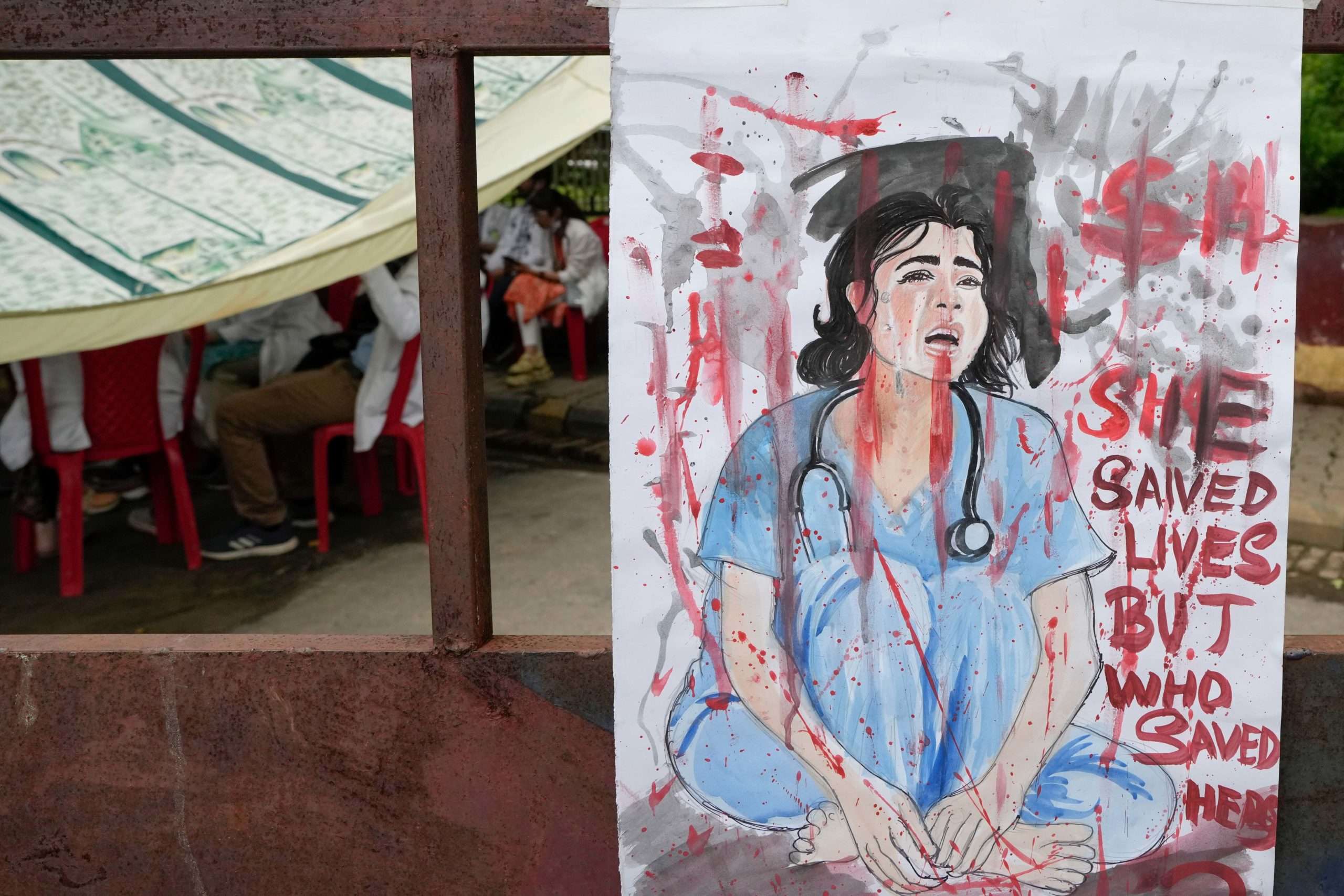Kolkata rape: Rage is justified, revenge is not
We are still reeling from the rape and murder of a female doctor in RG Kar Hospital in Kolkata. It’s a case that has captured the rage of the nation, but unfortunately there are many others that go unreported and unremarked — everyday rapes, within and outside the home and supposedly safe spaces. Regardless of the selectiveness of collective outrage, the sad reality remains that violence in its different forms is commonplace in India. During his Independence Day speech, the Prime Minister said, “As a society we should seriously dwell upon the atrocities being meted out to our mother, sisters and daughters.” Let us take this opportunity to do that.
 No easy fix: Instead of more laws, we need to resolve problems plaguing the police, forensics and judiciary
No easy fix: Instead of more laws, we need to resolve problems plaguing the police, forensics and judiciary
Our policies to tackle sexual violence against women have largely been reactive in recent years — whether it was changes in the law in response to the Delhi gangrape in 2012 (disregarding the recommendations of the Verma Committee set up to specifically offer solutions) or changes brought in after the gangrape of a minor girl in Kathua in 2018. Yet again, there are calls for increased minimum and maximum punishments. After changes made to criminal law in 2013 and 2018, we already have punishments ranging from 20 years to imprisonment until the end of a person’s life, and the death penalty for many sexual offences. The state has already legislated artificial timelines for trials and investigations to be completed within, for instance, 30 days, without keeping in mind institutional capacity to do so. Surely, we remember our celebration when, in 2019, four men arrested for a gangrape and murder in Hyderabad were killed in an encounter. Their actual guilt became irrelevant. The celebration was about revenge, not justice.
Not addressing sexual violence as a persistent problem has prevented us from taking a long term and broader view of the problem. In fact, perversely, the burden has been put on women to subject themselves to censorship — don’t go out of hostels after a certain time, don’t access libraries at night, don’t wear short skirts, don’t smoke, be careful of who you talk to, etc. It is an acknowledgement, including by the state, that we can’t do the hard work required so that women can access public spaces and live their lives without fear.
When we do have laws to address violence specific to women such as on dowry deaths and domestic violence, the overwhelmingly accepted narrative is that women use such laws unfairly against men. While narratives around sexual violence characterise women as ‘mothers, daughters, and sisters’, the narrative around the same women when it comes to other issues is that they are liars. The narrative missing from everywhere is that women are equal citizens, regardless of the role they may play in men’s lives.
In the same speech, the PM mentioned that “there should be a wide discussion about the criminal.” Let’s do that as well. In March 2024, a death row prisoner belonging to a socio-economically marginalised community was acquitted by the trial court. After he had already spent more than a decade on death row, his third trial court proceeding found that the forensic samples excluded the accused as the source of the male DNA. His first trial lasted around nine days. His case is not unique. In 2023, the high courts alone acquitted 36 prisoners of all charges after they had been sentenced to death by the trial court. We must take note that the 36 acquittals mentioned above indicate that the actual criminals may not even be getting arrested.
The approach to calls for swift justice and problems of delays has been to shorten the time required for investigations and trials. Once again, we aimed to resolve a problem in one area without addressing pre-existing and persistent problems plaguing the police, forensic labs and the judiciary, such as of pendency, manpower, proper training, and sufficient and quality resources. These kinds of seemingly ‘instant’ solutions do nothing to ensure justice to victims and survivors. The state’s unwillingness to seriously invest in long-term solutions whether in institutional structures or social outcomes has led us away from justice and towards accepting measures that are packaged as justice.
Instead of relying on the persistence of violence, we rely on particular incidents in framing our criminal justice policy. This, in turn, has led us to believe that such incidents are exceptional, and perpetrated by an individual who is fundamentally different from an imagined ‘us’ but who cunningly looks like us. Preventing sexual violence must require us to look at reasons that create and encourage conditions that make women feel unsafe in all aspects of their lives. Unless we do so, we will continue to confound systemic violence with episodic aberrations. We will continue to punish people with increasingly harsher sentences, without being sure that they are even guilty.
The rage is justified, the rage and revenge policy is not.
Views expressed are personal.
Facebook
Twitter
Linkedin
Email
Disclaimer
Views expressed above are the author’s own.
END OF ARTICLE
Images are for reference only.Images and contents gathered automatic from google or 3rd party sources.All rights on the images and contents are with their legal original owners.


Comments are closed, but trackbacks and pingbacks are open.